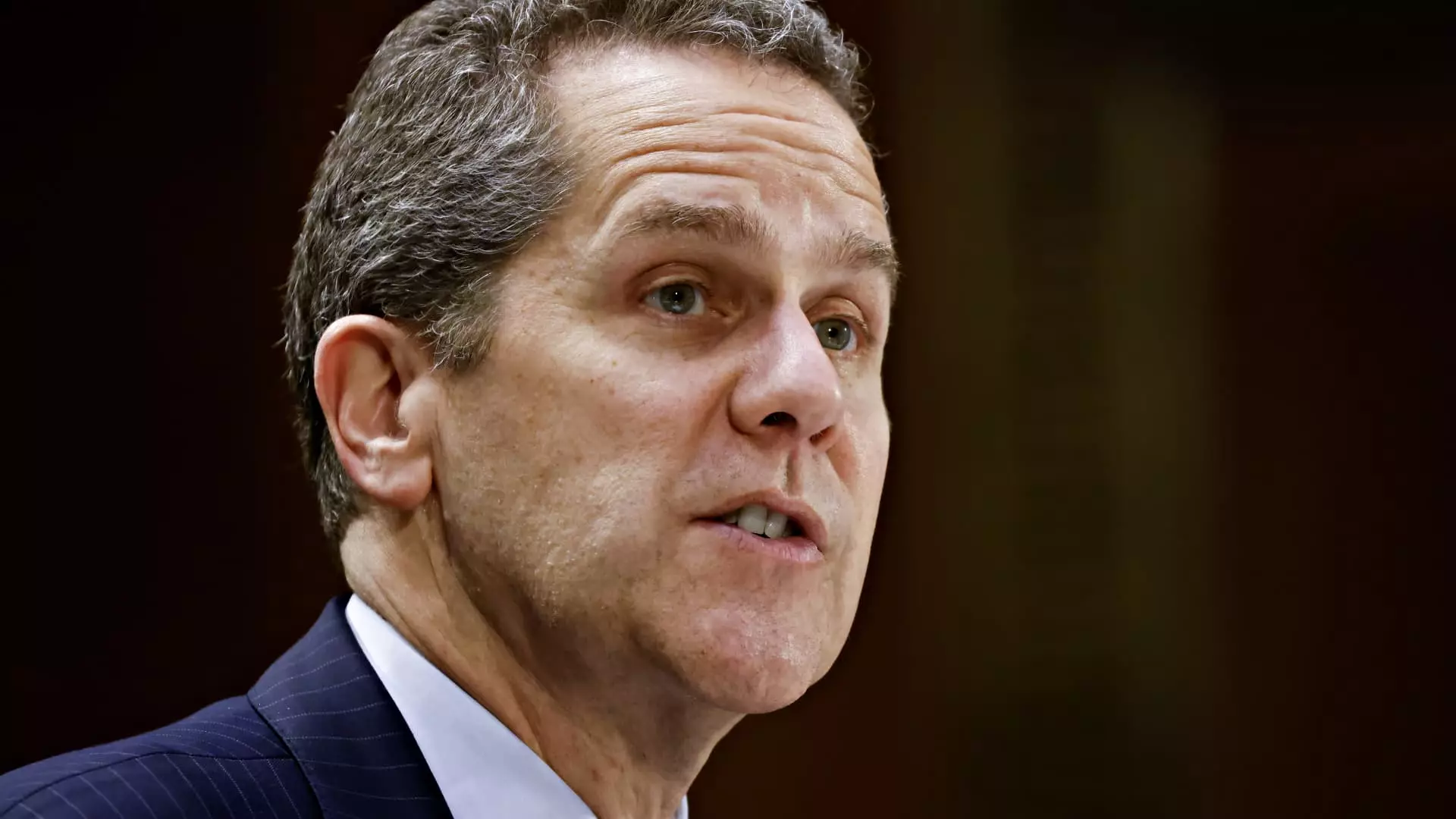The recent announcement of Michael Barr’s resignation as the vice chair for supervision of the Federal Reserve’s Board of Governors has stirred considerable conversation surrounding the future direction of financial regulation in the United States. Effective February 28, his decision not only opens the door for President-elect Donald Trump to appoint a new successor but also signifies a strategic retreat from a potentially contentious relationship with the incoming administration. As Barr maintains his position as a governor until 2026, his announcement reflects an awareness of the political currents shaping his role within the Federal Reserve, and a desire to minimize conflict during a pivotal transition in leadership.
Barr’s exit comes at a crucial time in U.S. banking history. Given Trump’s inclination toward appointing individuals who are perceived as more amenable to banking interests, Barr’s preemptive move seems calculated to avoid distractions that could detract from the Federal Reserve’s core mission of ensuring financial stability. In a statement acknowledging his departure, Barr emphasized the need to focus on the Fed’s objectives rather than allowing his position to become a source of conflict amid the new administration’s regulatory plans. His foresight in resigning indicates an ability to adapt to a rapidly changing political landscape that has significant implications for U.S. economic policy.
The immediate reaction from financial markets is telling of investor sentiment towards the future of banking regulations. Following the announcement of Barr’s resignation, bank stocks surged, evidenced by a notable spike in the SPDR S&P Bank exchange-traded fund. This rally indicates a market belief that a more industry-friendly approach may be on the horizon under Trump’s administration, which could lead to a reevaluation of stringent regulations that have characterized recent years. The relief felt in the banking sector underscores a potential shift toward deregulatory policies that align with Trump’s pro-business agenda.
With Barr’s departure, the Federal Reserve faces a pivotal moment regarding the ongoing regulatory overhaul known as the “Basel endgame.” The recognition that no major regulatory decisions will be made until a successor assumes the role means that there will be a period of uncertainty. This interim period presents both risks and opportunities—while the banks may relish the prospect of looser regulations, the potential for oversight lapses could endanger the stability measures put in place following the 2008 financial crisis. This scenario raises critical questions about how the new leadership will balance the needs of the financial sector with the imperative to safeguard against systemic risks.
As Barr prepares to transition out of his supervisory role, the Federal Reserve stands at a crossroads that will determine the trajectory of banking regulations for years to come. His replacement will need to navigate a complex environment marked by a fragile recovery and lingering dependencies on regulatory frameworks established post-crisis. The selection process initiated by Trump’s administration will inevitably draw attention from both the financial industry and policymakers, underscoring the broader implications of this shift in leadership at one of the nation’s most crucial economic institutions. As the dust settles, all eyes will be on how the Federal Reserve evolves under new guidance and what this means for the stability and prosperity of the U.S. financial system.



Leave a Reply